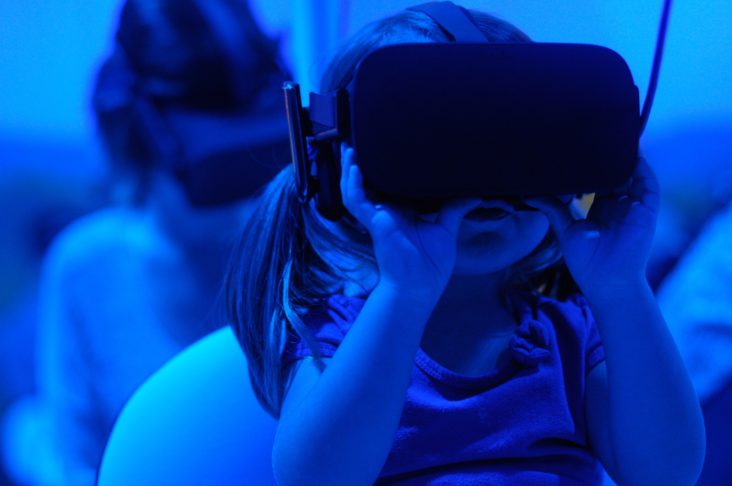Children with autism and Asperger’s often have phobias that limit their interaction with others. One child may be fearful of any social gathering, another of going shopping, while someone else may be afraid heights or be terrified to be in a crowd of people. These phobias can be so difficult for the child to experience, that often family members will go out of their way to avoid a situation they know will trigger the child’s fears. Additionally, children with Asperger’s syndrome and autism spectrum disorders often have trouble with safety boundaries that others take for granted, such as needing to stay within their own yard or being able to cross a street without harm. But, studies are showing that the new field of virtual reality therapy can help autistic children learn to manage everyday situations, allowing them to live a more normal life.
How Does Virtual Reality Therapy Work?
Virtual reality therapy (VR therapy) is a computer-based simulation of the world around us. It is multi-sensory, providing both visual and auditory environments that can be configured to mimic a setting. By going through VR therapy, an autistic child can challenge and overcome their fears in a safe setting and in a way that gives them control.
With virtual reality therapy, a simulated environment allows the child to use an avatar to interact with others. Reminiscent of a video game, the children move their avatar through the program while a therapist views the session and provides coaching and feedback to the child. The kids have the ability to pause, repeat, or review their avatar’s interaction inside the setting until they feel confident about the situation.
How Can VR Therapy Help Autistic Children?
Among other applications, virtual reality therapy is being used to teach or enhance social cognition skills and emotion recognition to help children with autism become more comfortable in social settings. Social interaction is often a source of discomfort for autistic children because the syndrome keeps them from picking up on the subtle social signals most people take for granted. In fact, Daniel Smith, the senior director of discovery science at Autism Speaks has said, “Virtual reality and avatar-based programs may be especially promising for people with autism who are uncomfortable in social interactions where subtle social cues are important.”
Studies have proven that virtual reality therapy can actually rewire the regions of the brain that relate to social skills. VR therapy also amplifies those areas that relate to attention and information exchange. The result is an increased understanding and awareness of social signals and a higher perception of the back and forth exchanges that is the foundation of conversation.
In addition to teaching social skills for circumstances such as attending school, sitting for a job interview, going to the mall, or going on a date, VR therapy has helped teens and children overcome more physical situations involving things like a fear of heights, phobias surrounding crowds, and traveling on a school bus. Because the virtual simulations can be configured to show real-world settings, they can be adapted to conform to each child’s specific fears.
For example: for a child who is afraid of heights, VR therapy can create a situation in which the child – via their avatar – experiences riding an escalator or crossing a bridge. The scenario introduces the child to the situation slowly and increases the stimulus as they learn to desensitize their fear and build up their tolerance. The child is given encouragement and feedback by a child psychologist and has full control of the scene, so they can turn back or go to an earlier (less frightening) version whenever they need to.
After working through these phobias, the children are able to transfer their new skills to real-life situations – something that is usually difficult for autistic children because they focus on details instead of intangible perspectives. By targeting a child’s specific fears, virtual reality therapy provides real world scenarios with immediate feedback, which greatly enhances the child’s ability to cope under stress.
Need More Information about Autism and Virtual Reality Therapy?
Our warm and welcoming Children’s Center offers a wide range of clinical, therapeutic, educational and supportive services specifically for children ages two through twenty two.
For more information about how our skilled professional can use virtual reality therapy to help with your child’s autism, contact the Children’s Center for Psychiatry Psychology and Related Services in Delray Beach, Florida or call us today at (561) 223-6568.


